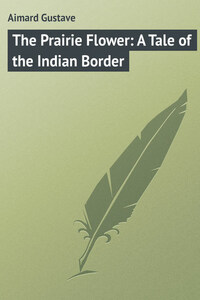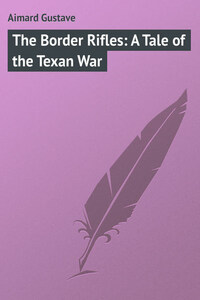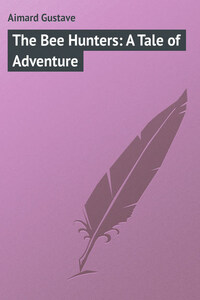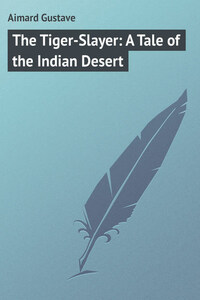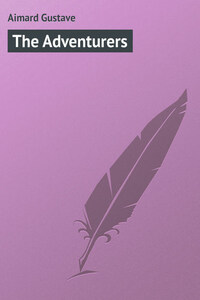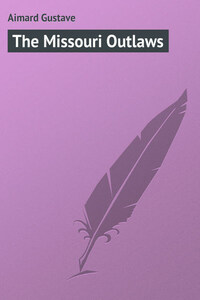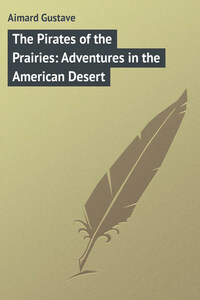CHAPTER I
A HUNTING ENCAMPMENT
America is the land of prodigies! Everything there assumes gigantic proportions, which startle the imagination and confound the reason. Mountains, rivers, lakes and streams, all are carved on a sublime pattern.
There is a river of North America – not like the Danube, Rhine, or Rhone, whose banks are covered with towns, plantations, and time-worn castles: whose sources and tributaries are magnificent streams, the waters of which, confined in a narrow bed, rush onwards as if impatient to lose themselves in the ocean – but deep and silent, wide as an arm of the sea, calm and severe in its grandeur, it pours majestically onwards, its waters augmented by innumerable streams, and lazily bathes the banks of a thousand isles, which it has formed of its own sediment.
These isles, covered with tall thickets, exhale a sharp or delicious perfume which the breeze bears far away. Nothing disturbs their solitude, save the gentle and plaintive appeal of the dove, or the hoarse and strident voice of the tiger, as it sports beneath the shade.
At certain spots, trees that have fallen through old age, or have been uprooted by the hurricane, collect on its waters; then, attached by creepers and concealed by mud, these fragments of forests become floating islands. Young shrubs take root upon them: the petunia and nenuphar expand here and there their yellow roses; serpents, birds, and caimans come to sport and rest on these verdurous rafts, and are with them swallowed up in the ocean.
This river has no name! Others in the same zone are called Nebraska, Platte, Missouri; but this is simply the Mecha-Chebe the old father of waters, the river before all! the Mississippi in a word!
Vast and incomprehensible as is infinity, full of secret terrors, like the Ganges and Irrawaddy, it is the type of fecundity, immensity, and eternity to the numerous Indian nations that inhabit its banks.
Three men were seated on the bank of the river, a little below its confluence with the Missouri, and were breakfasting on a slice of roast elk, while gaily chatting together.
The spot where they were seated was remarkably picturesque. The bank of the river was formed of small mounds, enamelled with flowers. The strangers had selected for their halt the top of the highest mound, whence the eye embraced a magnificent panorama. In the foreground, dense curtains of verdure which undulated with each breath of air: on the islands innumerable flocks of dark-winged flamingos, perched on their long legs, plovers and cardinals fluttering from bough to bough, while numerous alligators lazily wallowed in the mud. Between the islands, the silvery patches of water reflected the sunbeams. In the midst of these masses of coruscating light, fishes of every description sported on the surface of the water, and traced sparkling furrows. Further back, as far as the eye could reach, the tops of the trees that bordered the prairie, and whose dark green scarcely showed upon the horizon.
But the three men we have mentioned seemed to trouble themselves very slightly about the natural beauties that surrounded them, as they were fully engaged in appeasing a true hunter's appetite. Their meal, however, only lasted a few minutes, and when the last fragments had been devoured, one lighted his Indian pipe, the other took a cigar from his pocket. They then stretched themselves on the grass, and began digesting with that beatitude which characterizes smokers, while following with a languid eye the clouds of bluish smoke that rose in long spirals with each mouthful they puffed forth. As for the third man, he leant his back against a tree, crossed his arms, on his chest, and went to sleep most prosaically.
We will profit by this momentary repose to present these persons to our readers, and make them better acquainted with each other. The first was a Canadian half-breed, of about fifty years of age, and known by the name of "Bright-eye." His life had been entirely spent on the prairie among the Indians, all of whose tricks he was thoroughly acquainted with.
Like the majority of his countrymen he was very tall, more than six feet in height: his body was thin and angular; his limbs were knotty, but covered with muscles, hard as ropes; his bony and yellow face had a remarkable expression of frankness and joviality, and his little grey eyes sparkled with intelligence; his prominent cheekbones, his nose bent down over a wide mouth supplied with long white teeth, and his rounded chin, made up a face which was the most singular, and, at the same time, the most attractive that could be imagined.
His dress differed in no respect from that of the other wood rangers; that is to say, it was a strange medley of European and Indian fashions, generally adopted by all the white prairie hunters and trappers. His weapons consisted of a knife, a pair of pistols, and an American rifle, now lying on the grass, but within reach of his hand.
His companion was a man of thirty to thirty-two years of age at the most, but who appeared scarce twenty-five, tall, and well made. His blue eyes, limpid as a woman's, the long light curls that escaped beneath the edge of his Panama hat, and floated in disorder on his shoulders, the whiteness of his skin, which contrasted with the olive and brown complexion of the hunter, were sufficient evidence that he was not born in the hot climate of America.
